2.4. Билан Ю..pptx
- Количество слайдов: 13
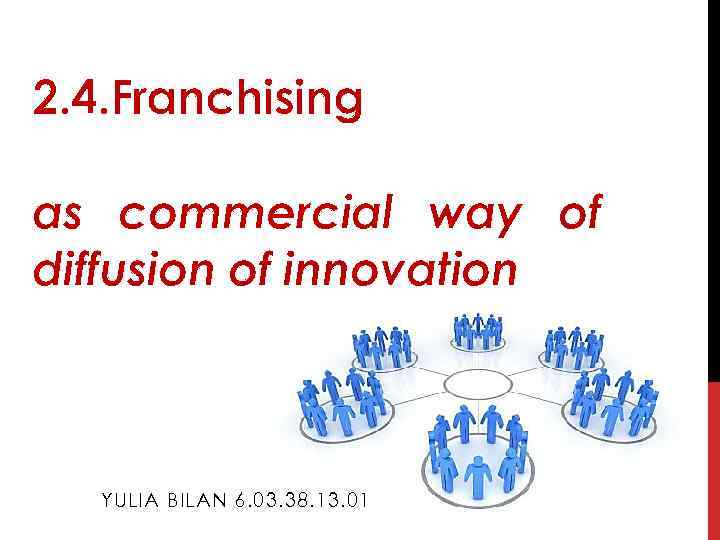 2. 4. Franchising as commercial way of diffusion of innovation YULIA BILAN 6. 03. 38. 13. 01
2. 4. Franchising as commercial way of diffusion of innovation YULIA BILAN 6. 03. 38. 13. 01
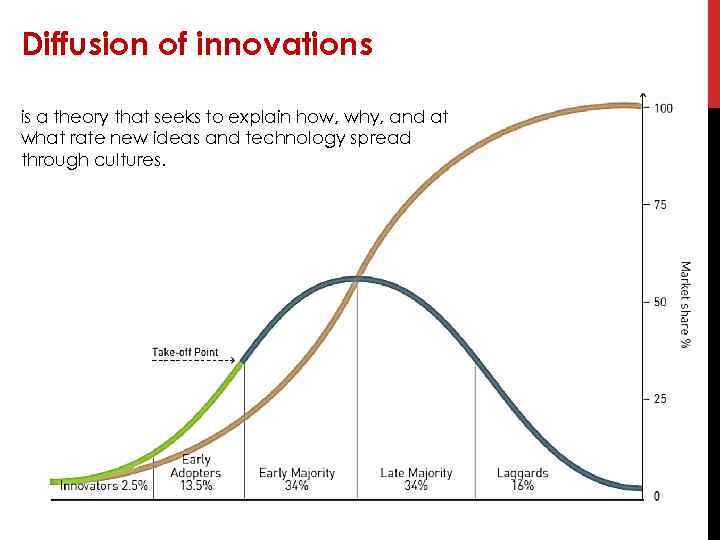 Diffusion of innovations is a theory that seeks to explain how, why, and at what rate new ideas and technology spread through cultures.
Diffusion of innovations is a theory that seeks to explain how, why, and at what rate new ideas and technology spread through cultures.
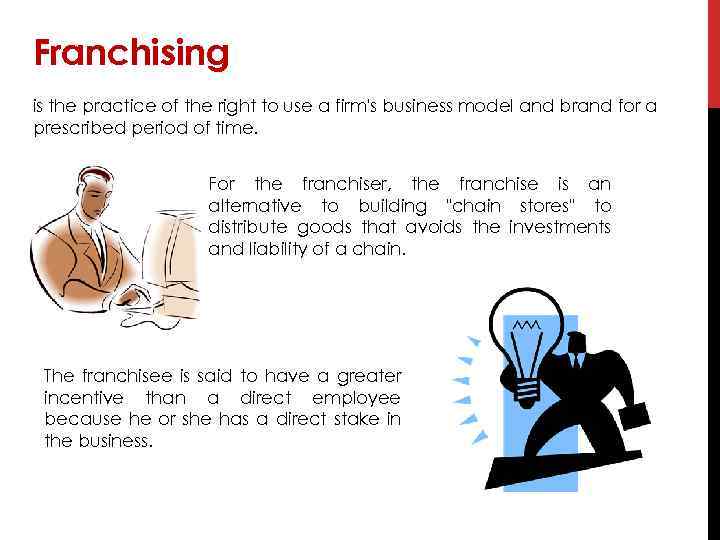 Franchising is the practice of the right to use a firm's business model and brand for a prescribed period of time. For the franchiser, the franchise is an alternative to building "chain stores" to distribute goods that avoids the investments and liability of a chain. The franchisee is said to have a greater incentive than a direct employee because he or she has a direct stake in the business.
Franchising is the practice of the right to use a firm's business model and brand for a prescribed period of time. For the franchiser, the franchise is an alternative to building "chain stores" to distribute goods that avoids the investments and liability of a chain. The franchisee is said to have a greater incentive than a direct employee because he or she has a direct stake in the business.
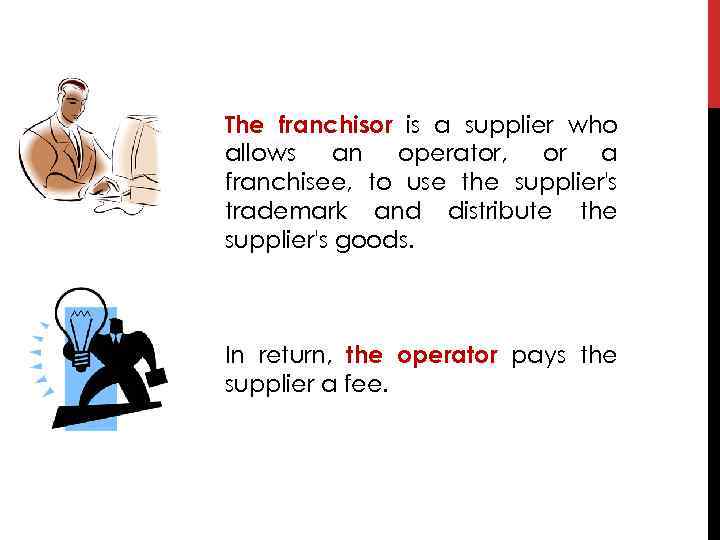 The franchisor is a supplier who allows an operator, or a franchisee, to use the supplier's trademark and distribute the supplier's goods. In return, the operator pays the supplier a fee.
The franchisor is a supplier who allows an operator, or a franchisee, to use the supplier's trademark and distribute the supplier's goods. In return, the operator pays the supplier a fee.
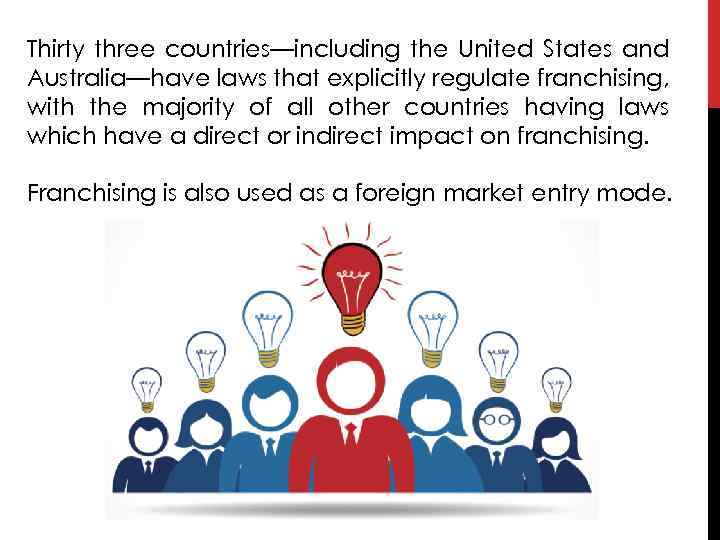 Thirty three countries—including the United States and Australia—have laws that explicitly regulate franchising, with the majority of all other countries having laws which have a direct or indirect impact on franchising. Franchising is also used as a foreign market entry mode.
Thirty three countries—including the United States and Australia—have laws that explicitly regulate franchising, with the majority of all other countries having laws which have a direct or indirect impact on franchising. Franchising is also used as a foreign market entry mode.
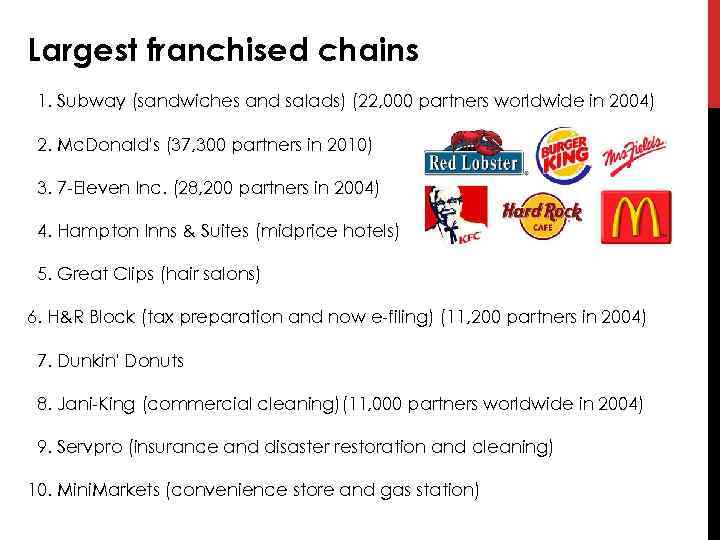 Largest franchised chains 1. Subway (sandwiches and salads) (22, 000 partners worldwide in 2004) 2. Mc. Donald's (37, 300 partners in 2010) 3. 7 -Eleven Inc. (28, 200 partners in 2004) 4. Hampton Inns & Suites (midprice hotels) 5. Great Clips (hair salons) 6. H&R Block (tax preparation and now e-filing) (11, 200 partners in 2004) 7. Dunkin' Donuts 8. Jani-King (commercial cleaning)(11, 000 partners worldwide in 2004) 9. Servpro (insurance and disaster restoration and cleaning) 10. Mini. Markets (convenience store and gas station)
Largest franchised chains 1. Subway (sandwiches and salads) (22, 000 partners worldwide in 2004) 2. Mc. Donald's (37, 300 partners in 2010) 3. 7 -Eleven Inc. (28, 200 partners in 2004) 4. Hampton Inns & Suites (midprice hotels) 5. Great Clips (hair salons) 6. H&R Block (tax preparation and now e-filing) (11, 200 partners in 2004) 7. Dunkin' Donuts 8. Jani-King (commercial cleaning)(11, 000 partners worldwide in 2004) 9. Servpro (insurance and disaster restoration and cleaning) 10. Mini. Markets (convenience store and gas station)
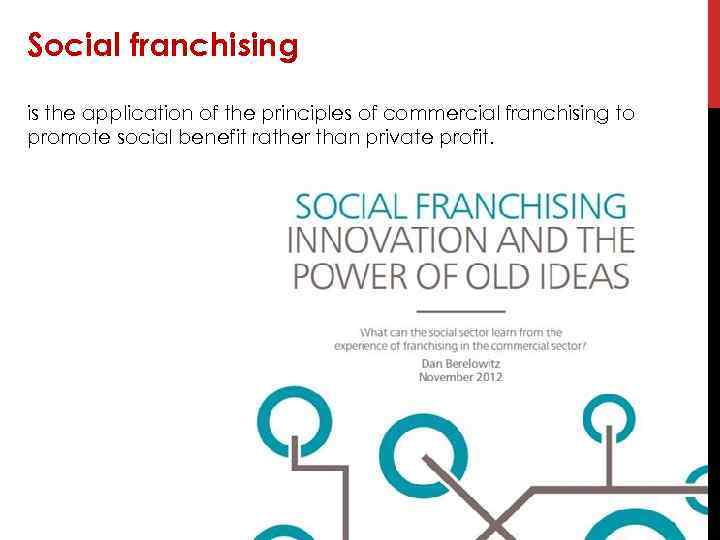 Social franchising is the application of the principles of commercial franchising to promote social benefit rather than private profit.
Social franchising is the application of the principles of commercial franchising to promote social benefit rather than private profit.
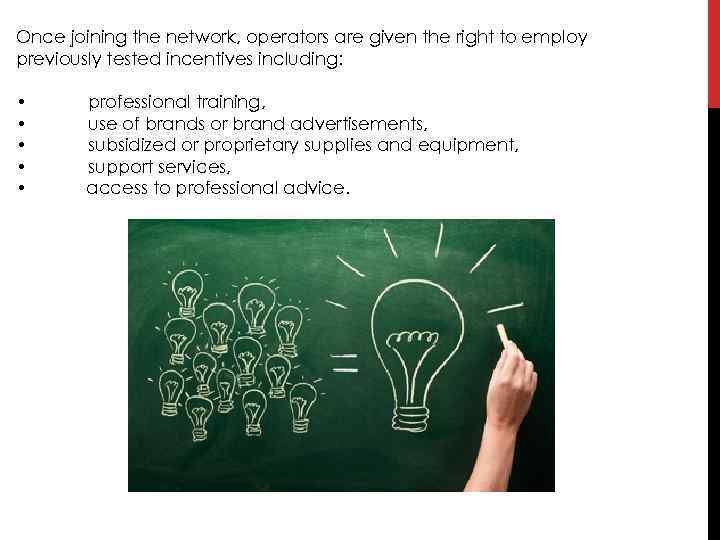 Once joining the network, operators are given the right to employ previously tested incentives including: • • • professional training, use of brands or brand advertisements, subsidized or proprietary supplies and equipment, support services, access to professional advice.
Once joining the network, operators are given the right to employ previously tested incentives including: • • • professional training, use of brands or brand advertisements, subsidized or proprietary supplies and equipment, support services, access to professional advice.
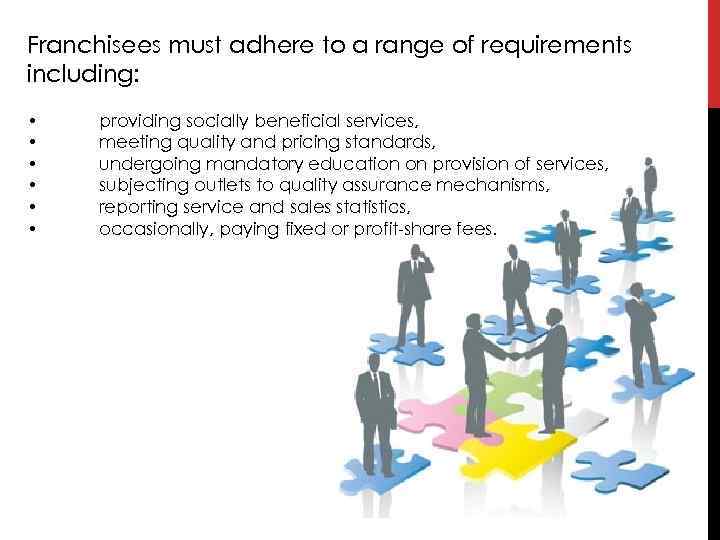 Franchisees must adhere to a range of requirements including: • • • providing socially beneficial services, meeting quality and pricing standards, undergoing mandatory education on provision of services, subjecting outlets to quality assurance mechanisms, reporting service and sales statistics, occasionally, paying fixed or profit-share fees.
Franchisees must adhere to a range of requirements including: • • • providing socially beneficial services, meeting quality and pricing standards, undergoing mandatory education on provision of services, subjecting outlets to quality assurance mechanisms, reporting service and sales statistics, occasionally, paying fixed or profit-share fees.
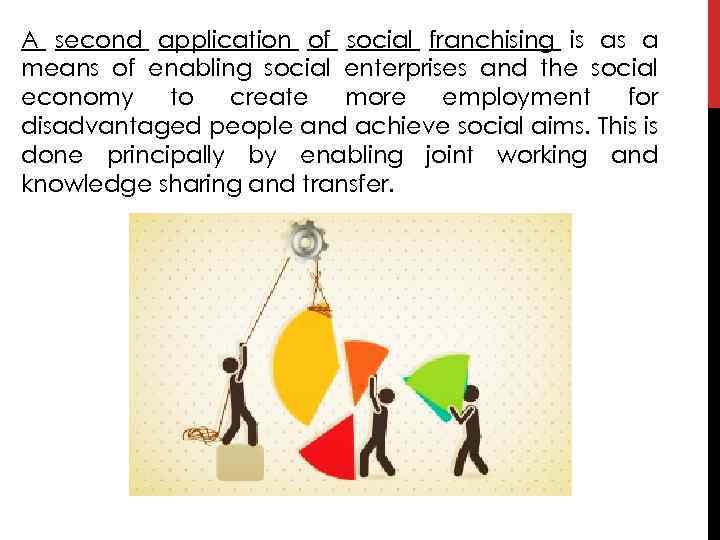 A second application of social franchising is as a means of enabling social enterprises and the social economy to create more employment for disadvantaged people and achieve social aims. This is done principally by enabling joint working and knowledge sharing and transfer.
A second application of social franchising is as a means of enabling social enterprises and the social economy to create more employment for disadvantaged people and achieve social aims. This is done principally by enabling joint working and knowledge sharing and transfer.
 The Social Franchise Enterprise is a type of Social initiative directed to achieve development goals through private ventures that provide goods and services to unserved markets, at a viable price.
The Social Franchise Enterprise is a type of Social initiative directed to achieve development goals through private ventures that provide goods and services to unserved markets, at a viable price.
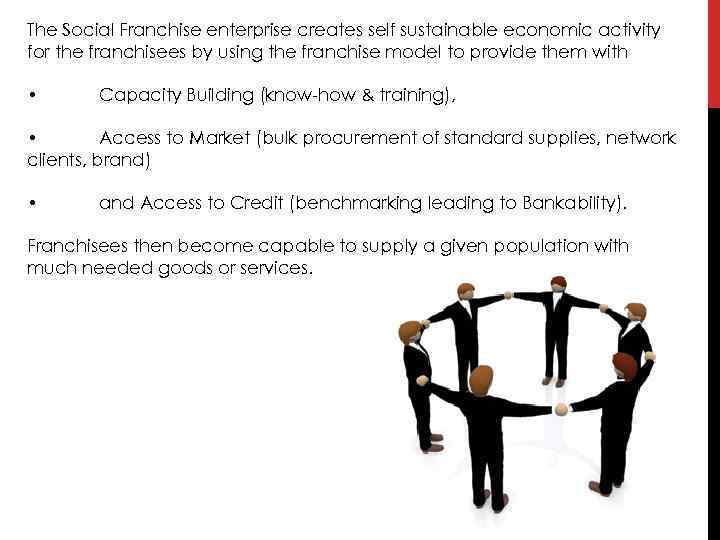 The Social Franchise enterprise creates self sustainable economic activity for the franchisees by using the franchise model to provide them with • Capacity Building (know-how & training), • Access to Market (bulk procurement of standard supplies, network clients, brand) • and Access to Credit (benchmarking leading to Bankability). Franchisees then become capable to supply a given population with much needed goods or services.
The Social Franchise enterprise creates self sustainable economic activity for the franchisees by using the franchise model to provide them with • Capacity Building (know-how & training), • Access to Market (bulk procurement of standard supplies, network clients, brand) • and Access to Credit (benchmarking leading to Bankability). Franchisees then become capable to supply a given population with much needed goods or services.
 The end. Thank you for attention!
The end. Thank you for attention!


